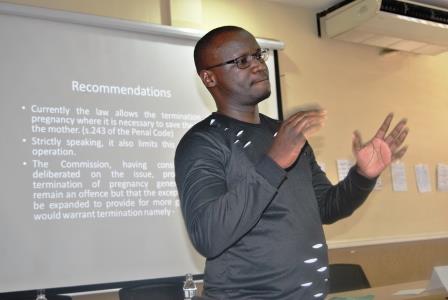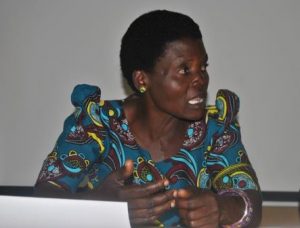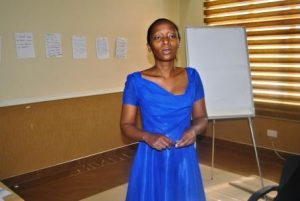
In Malawi’s national language, Chichewa, pregnancy is referred to as “pakati” which means “between life and death.” Some antiquated laws in Malawi solidify this negative connotation that pregnancy-related issues are matters of life and death. KONDWANI KAMIYALA writes in The Nation Newspaper how one woman faced a life and death situation because of her unwanted pregnancy.
In 2016, Margaret Kawala was 41 years-old when she gave birth to her third child. Kawala, who was married in 1992, knew no better happiness.
But three months later, the joy turned into grief for Kawala, who lives in Mponela, Traditional Authority Dzoole in Dowa. She was pregnant, again.
“It was confirmed that I was pregnant. My husband did not believe it, so I went for another test. It was indeed true that I was pregnant again. It confused us so much. There was no way I could keep the pregnancy,” says Kawala.
The two agreed to terminate the pregnancy. But when they went to the private clinic, she was told to pay. “I didn’t have any money. The last option was to visit a herbalist,” she affirms.
That was the beginning of more pain.
“The herbalist told me that the bottled concoction was too strong so he advised me to take it nearer my home. When I took it, I began feeling excruciating pains in my abdomen. I lost so much blood and I was unconscious for some time. I did not realise it when they took me to the hospital,” she says.
After conducting the manual vacuum aspiration—removing the uterine contents—health workers had to remove her uterus, which was ruptured.
Removal of the uterus, which meant she would no longer bear children, made her husband have other thoughts. According to Kawala, he could not stand having a wife who could no longer bear him more children.
“We agreed he could get a second wife. But when he did, he started to completely ignore me. Consequently, he told me he did not want me. We divorced and I had to go back home,” says Kawala, a member of the Last Church of God.

Dr Chisale Mhango of the College of Medicine (CoM) says Kawala’s story is a familiar one. The narrative of poor girls and women trying to terminate a pregnancy through unsafe means, he says, is common. After such an unsafe abortion, a manual vacuum aspiration or a dilation and curettage (D&C) is conducted and in the extreme case, the womb has to be removed.
“In some cases, the husband decides to divorce his wife. I remember one case off the head after I treated a woman who had had an unsafe abortion.
“When her uterus was removed, she asked her husband: ‘You will leave me, won’t you?’ and the husband answered: ‘Yes, but we will talk about it later’. This is common,” Mhango, who is also president of the Association of Obstetricians and Gynaecologists, said.
According to him, women who are mostly seeking unsafe abortions are poor. He said in spite of the fact that sections 243 of the Penal Code out-laws abortion unless where the pregnancy threatens the life of the woman, some are still having back alley abortions.
The Law Commission, after a countrywide consultation, submitted to government a Termination of Pregnancy Bill, which among other things, gives liberty to abort where women get pregnant as victims of incest and rape, they are psychologically and mentally affected by the pregnancy or the foetus is malformed.
Weekend Investigates spot checks in various hospitals across the country revealed pains women go through after an unsafe abortion. Mostly, the result is ruptured wombs.
Under normal circumstances, misopostrol, a drug often sold under the brand name Cytotec, is used to induce labour and control bleeding in pregnant women. But a visit to Nsanje District Hospital last year showed some women were using the pills to terminate unwanted pregnancies.
A 15-year-old girl who accessed post-abortion care at the hospital said she had used the drug, on counsel from her mother following a pregnancy from a kusasafumbi ritual after her initiation.
A clinical officer at the hospital, Dominic Mnyontho, said: “Women are using prescription drugs to induce abortions. We discover the pills they insert in their wombs when we are treating women of unsafe abortion complications. This often ends in ruptured wombs.”
In Salima, health workers admitted to conducting post-abortion care, especially for women who, apart from herbal concoctions, use such objects as wires and cassava stems.
A visit to the hospital’s female ward, where post abortion care patients are admitted in the absence of a gynaecological ward, leaves you shuddering. Some women are groaning in pains on the beds, and you can’t tell how many are going through post-abortion care. All you know is that 32 percent of 523 women in the ward between January and March last year were getting that care.
The surgical theatre, where women who had botched abortions are assisted, brings you into a better picture.
There is a single bed-bench, where operations are conducted. You can note some fresh clots of blood and the smell leaves you with one conclusion: someone had just been treated.
The only other equipment in the room, is a simple light-emiting diode (LED) bulb that makes you wonder how the operation can be conducted in the night. That is, instead of the recommended Robin Examination Light.
In Malawi, between 6 and 18 percent of maternal deaths were the result of complications from abortion.
According to results of a 2009 survey published in the International Journal of Gynaecology and Obsterics, one in four women who reached a health care facility like Salima for post-abortion care had severe or moderate complications.
Research also shows that a liberalised abortion law could result in a reduction of 20 to 30 percent costs incurred in treating patients of back street abortions. Currently, the Ministry of Health estimates that K300 million is used every year in post-abortion care.
Deputy director for reproductive health in the Ministry of Health, Owen Chikhwaza said with increased unsafe abortions, government is losing a lot. “A safe abortion costs about K200, yet to treat a woman who had an unsafe abortion costs over K1 million,” Chikhwaza said during a workshop for journalists co-organised by the Centre for Solutions Journalism (CSJ) and global health rights body, Ipas.

Medical practitioners faced with a woman willing to terminate a pregnancy may end up in a dilemma, even if abortion laws were relaxed, as morals and religion would make them inform their decisions.
With the special Law Commission recommending a possible relaxation of abortion laws, medical personnel differ on whether they can administer abortion or not, if more conditions are provided by law.
One nurse, in an interview, said she cannot administer abortion, even where the law would allow it fully.
“I am a Christian and I value my beliefs. Safe or unsafe abortion, I would not do such a thing. However, where a woman had an unsafe abortion elsewhere, I would assist in providing post-abortion care,” said the nurse.
Another clinician, at the same central region hospital, said if allowed by law, he would help those willing to terminate pregnancy.
He observes: “Imagine a child born from rape or incest and the trauma they will have to go through all their life. What about the mother? Besides, you know many religions are against incest so what do we say of babies conceived in such unions?”
When a health official chooses not to conduct an abortion, says Mike Chinoko of the Malawi Law Commission, it is called conscientious objection.
“In that case, the new law, which is now at cabinet level, proposes that the medical worker has to refer the woman seeking the services to another willing health worker,” said Chinoko.
According to him, the proposed law provides that the termination occurs within 16 weeks of gestation.
As the wait for Parliament to discuss the new law, some chiefs are worried women in their areas continue to die due to complications of unsafe abortions. Others, like Kawala, end up with ruptured wounds.
“We are losing women in the rural areas since they are not able to access safe abortion. Women who have the financial muscle have no problems. Currently, we have set by-laws to punish women who engage in unsafe abortions and also the men who lead them into it,” says Senior Chief Lukwa of Kasungu
